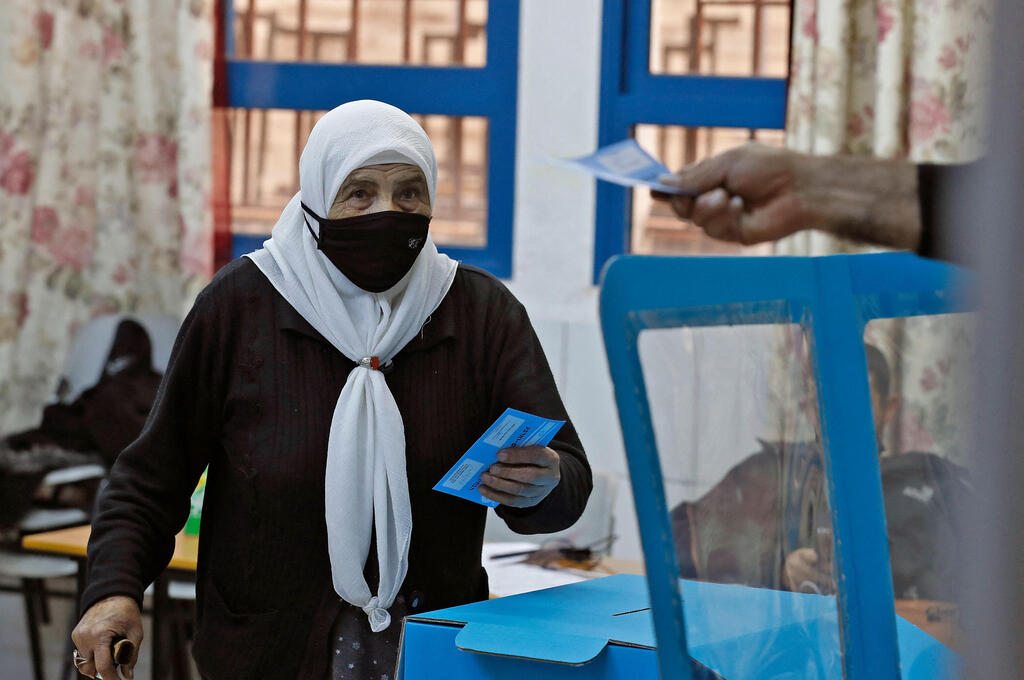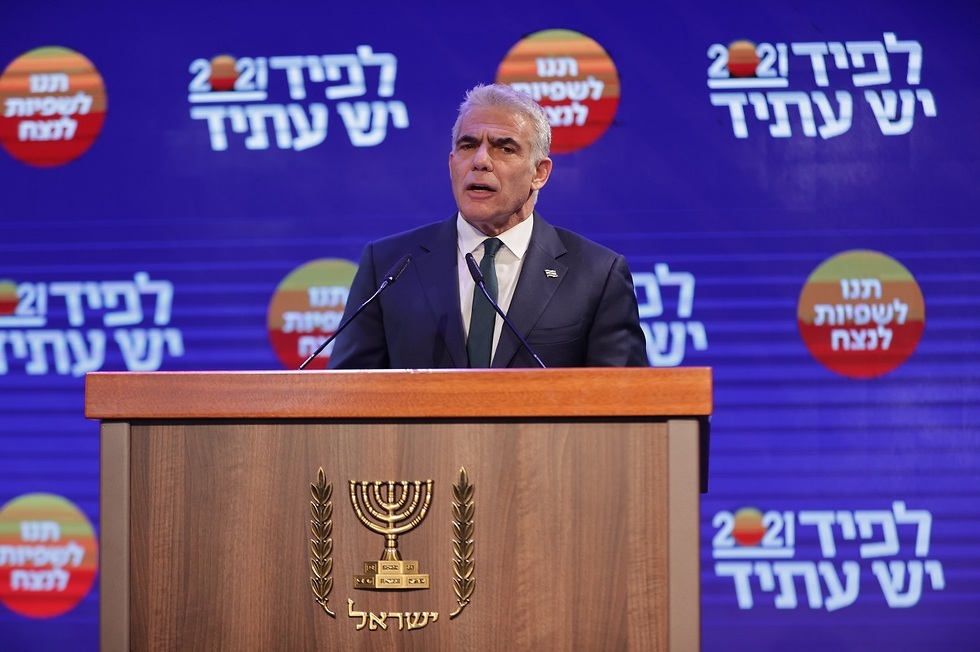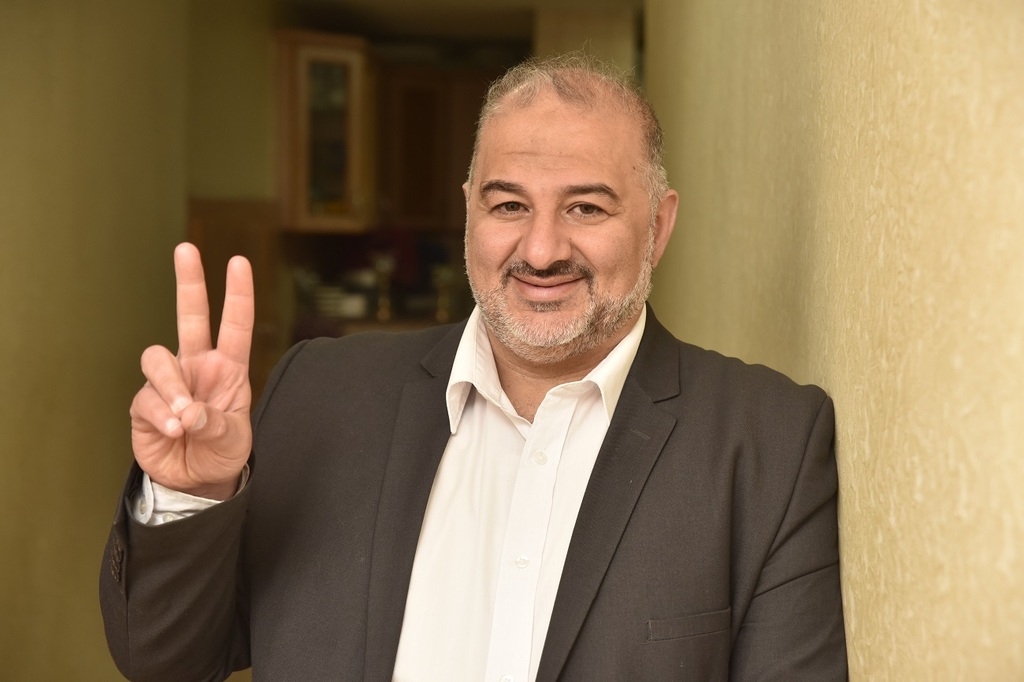Voter turnout may have been relatively low and the campaign season rather lackluster, but there is no doubt that the March 23 election shone a spotlight on the Arab sector.
It made key players of its elected representatives, making them into kingmakers in the formation of Israel's next government and choosing its leader.
Even before Mansour Abbas' Islamist Ra'am party cleared the threshold to make it into the Knesset, he had become one of Israel's most courted politicians.
For the first time since the country's creation, there is a genuine possibility that an Arab party will join the coalition or at least support it in some way.
On the other hand, the predominantly Arab Joint List alliance, from which Ra'am split before the elections, suffered a heavy blow in the polls.
It is now considering its next steps, insisting that it is not in anyone's pocket - even those who call for the ouster of Prime Minister Benjamin Netanyahu.
For now, there are many unanswered questions regarding the fate of both parties, which together managed to garner just 10 Knesset seats - a dramatic drop from the 15 seats in the March 2020 elections - with many of their voters moving to other parties or simply staying home.
Even so, the March 23 vote put Israel's Arab citizens at a crossroads. Their votes may not only determine Israel's next premier, but the political fate of the whole nation.
7 View gallery


An Israeli woman casts her ballot in the Arab village of Tamra on March 23, 2021
(Photo: AFP)
Conservatism and concern
"Israeli Arabs have never wanted more to belong. Their Palestinian identity is important but there is a difference between Palestinians within Israel and those in the West Bank and Gaza Strip, specifically on civil rights," says Dr. Arik Rudnitzky, a researcher for the Arab-Jewish Relations Program at the Israel Democracy Institute.
"The discourse has become one focusing on civil issues. Ra'am recognized this potential, portraying itself as an 'authentic' party for the conservative Muslim Arab mainstream, telling them that 'no one can take away our identity, but we must ensure that our rights are not being removed.'"
Frequent Ynet contributor Michael Milshtein, head of the Palestinian Studies Forum at the Moshe Dayan Center for Middle Eastern and African Studies, says that the Ra'am election success stems from rising conservatism in the sector.
"Those who voted for [Ra'am] on the one hand want to integrate and influence decision making and not remain in opposition, but on the other also have a unique conservative ideology," he says.
"The whole Bedouin sector went with them. Their identity is very different to that of run-of-the-mill left-wing voters; they are not modern secularists or western in their thinking."
Journalist Nahad Darbas points to two additional factors in Ra'am's success: Voters' disappointment in the Joint List and massive campaign efforts on the ground that swayed those voters to Ra'am.
Areas with strong support for Ra'am were not limited to specific regions or communities. A report set to be published next week found that the Islamist party managed to gain a lot of voters in most Bedouin communities in northern and southern Israel, mixed neighborhoods with a strong Bedouin population (such as Jawarish in Ramle) and villages in the area around Kfar Qasem - the cradle of the Islamic Movement in Israel.
Joint List in decline
In the March 2020 election, Joint List managed to win 15 Knesset seats, but without Ra'am, it fell to just six seats.
"Ra'am splitting from the alliance was a painful blow for Joint List and the Arab population punished them for it, refusing to vote for them out of anger over the divide – they want all the sector's parties to run together," says Darbas.
She says that the split severely weakened Arab influence in the Knesset, which led to voters seeing no reason to vote for them. As a result, turnout in the Arab sector dropped from over 67% in the last elections to 45.6% on March 23.
Experts points to this fall in seats as a critical reason for Joint List to rethink its next steps.
"This is an all-time low," says Rudnitzky. "Now [left-wing] Meretz has more Arab representatives than Balad, which raises the question of whether in the near or distant future we will see a government supported by Ra'am and have Joint List in the opposition."
Another reason for Joint List's collapse is also their lack of success in promoting their sector's needs through Knesset legislation.
7 View gallery


Joint List leader Ayman Odeh and fellow party members on Election Night
(Photo: Gil Nechushtan)
"They [Joint List] mainly focused and worked through slogans, ideologies and national ideas, rather than tackle civil issues," says Milshtein.
"This sort of discourse is over and generally belongs with the older generations. Now that Joint List has failed to deliver, the Arab sector wants representatives who can create genuine achievements."
According to him, the party remains dominant in communities with low voter turnout such as Umm al-Fahm, the central Arab city that was the heart of a wave of protests over rampant crime in the sector.
'Abu Yair' and Likud voters
Looking at the initial data released by the Central Elections Committee, experts say that Netanyahu's Likud has increased its power in the Arab sector – if only by about half a Knesset seat or about 50,000 votes.
The prime minister's Abu Yair campaign blitz mainly increased his support among the Bedouin communities in the south, but that is about it.
Nevertheless, Rudnitzky believes that there is a sizeable chunk of Arab voters who think that Netanyahu is a worthy candidate for the premiership.
"There is a serious issue of lack of trust in the government, even the plan Netanyahu promoted to cut down on crime in the Arab sector is seen by many as just vaporware," he says.
"In the end, Likud gained about half a Knesset seat, but it is still the most the party has ever received from the Arab sector. Many within the community see Netanyahu as a fitting prime minister, a little bit like his predecessor Arik Sharon, who also pushed hard to promise benefits and aid to the sector, but ended up gaining about 20,000 votes. Sometimes the plan just doesn't work out."
7 View gallery


A Likud campaign poster in in the Arab city of Shfar'am refers to Benjamin Netanyahu as 'Abu Yair'
(Photo: Twitter)
Darbas believes that most if not all of Likud's Arab votes were from the Druze community.
"Israeli Arabs will not vote Likud, especially when they do not have a representative on the party list," she says.
"All of the Jewish parties together got about 70,000 Arab votes, with Joint List's split a factor in this. If the party reunites, I believe voters will return."
The 'Arab Shas'
Although Ra'am is being heavily courted by parties on both sides of the aisle, there is small chance of it joining any coalition.
"The right-wing stressed all the way through the campaign that they would not partner with the Arab parties, that Netanyahu was at the head of a right-wing party first and foremost and that he needs to work in accordance with the will of his voters," Darbas says.
"He does not want to waste his support among the Zionist right-wing and go with Abbas."
According to Darbas, Ra'am is exploring all possibilities with both blocs but in the end will go with the group who promises to promote a plan to fight the crimewave in the Arab sector, end the Nation-State Law and allow them a free vote on LGBT issues.
Regarding the last condition, she believes that Abbas will find the anti-Netanyahu camp less inclined to agree to this.
On the other hand, if Abbas does eventually recommend Netanyahu for the premiership, it is likely that the ensuing infighting within the right-wing bloc will not allow a government to survive for longer than a few months, triggering a fifth election cycle since early 2019.
7 View gallery


Yesh Atid leader Yair Lapid speaking to supporters on Election Night
(Photo: Tal Shahar)
Given the slim chance that Ra'am will join a coalition led by Yesh Atid leader Yair Lapid – due to opposition by New Hope's Gideon Saar, Yisrael Beytenu's Avigdor Liberman and Yamina's Naftali Bennett - Rudnitzky is convinced that a partnership with the right-wing camp might actually work.
"The [right-wing] camp is far more homogenous, with Netanyahu and his allies save for Yamina and Religious Zionist Party who are against [a union]," he says.
"They will get the portfolios they want and Ra'am will get their issues taken care of. If this manages to hold for at least the next two years, we will see real change.
"Bedouin communities in the Negev will be recognized, money will start flowing into the Arab sector. In the end, it is all politics and Ra'am is willing to become the Arab version of the ultra-Orthodox Shas party."
Chaos and crises of faith
Ra'am ultimately finding itself in opposition as neither bloc is willing to agree to its terms increases the chances of Israel heading to the polls for a fifth time in some two years.
Such a scenario would have a devastating impact on the Arab sector and would only intensify tensions between Jews and Arabs.
"If in this election we saw low voter turnout in the Arab sector, in the next one the community will understand that no one wants them in the government and this will cause chaos," Milshtein says.
7 View gallery


Jewish and Arab demonstrators protest police violence in the Arab village of Umm al-Fahm
(Photo: Nadav Abas)
"Voter turnout will fall further and there will be real frustration within the Arab population when they understand that no one wants to help them with crime, infrastructure or the younger generation," he says.
"This could be a massive blow to the sector's faith in the government."
Most experts believe that Ra'am has no interest in a fifth election, but that decision is not in their hands.



